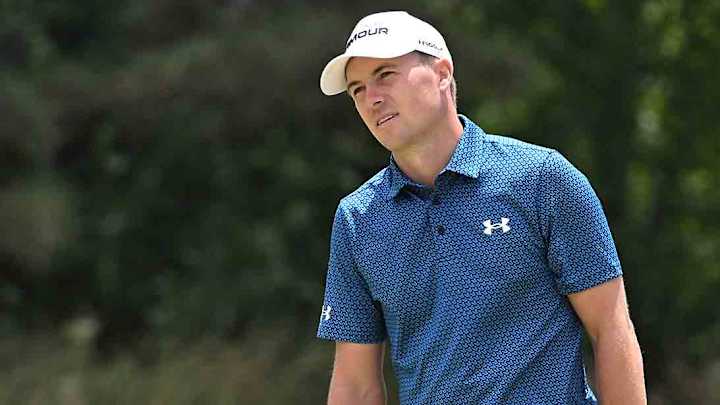Jordan Spieth Persevering Through Illness That Came at Just the Wrong Time

BROOKLINE, Mass. — Jordan Spieth will likely leave Boston on a sour note, which is understandable given the week he had.
It all started Tuesday when he got back to the house he is renting with Justin Thomas after the Red Sox' 6-1 win over the Oakland A’s.
After a shower, Spieth hit the bed when his temperature changed dramatically. Spieth was freezing.
Even a pair of sweats and burrowing under the covers was not enough to get him warm, and at that point he knew he had a fever. Every movement produced more chills, so like a mummy in a cocoon, the three-time major champion was in trouble.
“It wasn't like food-poisoning feeling,” Spieth said in trying to describe his symptoms after a third round 1-over 71 that left him 3 over for the U.S. Open. “It was like, my stomach was upset but not like food poisoning, but I didn’t want to move a muscle and I couldn’t sleep.”
Watch the U.S. Open online with fuboTV: Start your free trial today!
With an 8:30 a.m. tee time scheduled for Wednesday morning with Thomas, Scottie Scheffler and Sam Burns, Spieth eventually found the energy to text Thomas and caddie Michael Greller that he was not going to make it.
Finally getting some sleep, Spieth woke up at 6:30 a.m. having sweated through three shirts, but his fever had broken.
Spieth went to the doctor and the diagnosis was a 24-to-48 hour bug, one that seemed to be going through other players and their significant others.
“If mine came on a day later I wouldn't play,” Spieth said. “I came out here Wednesday, I hit a few shots and I went to hit a couple wedges and on my first full-swing wedge, I had to drop my club at that to try and go puking.”
Before Thursday’s first round, Spieth could get through the entire bag on the range without the need to seek a place to get sick, but starting the round with four bogeys in the first six holes was changing his perspective on if he should call it at the turn. Then two birdies in the last three holes gave Spieth enough juice to finish the round, a 2-over 72.
“My legs felt really shot, like jelly, and I just kind of felt really nauseous,” Spieth said. I was on meds and that was helping the nausea. When your body's fighting something you just need to be not trying to do something physically and mentally draining at a U.S. Open.”
Due to the illness, Spieth never got to prepare properly and during his first three rounds felt at times he didn’t have a good feel on lines off the tee or where he should miss it.
Also, Spieth is not a fan the elevated tee shots common at The Country Club, making the tee shots foreign to his eye and needing a little more practice, which he did not get.
“The quirkiness and the carving in and out and having to pick where you're going to go, that I certainly like,” Spieth said. “I think it's a great golf course just for me personally, just a couple holes I have a really hard time figuring out exactly what shot to play because there's so many downhill into-the-wind tee shots. I just I tried to hit it so low that I get so steep on it and it's frustrating.”

Alex Miceli, a journalist and radio/TV personality who has been involved in golf for 26 years, was the founder of Morning Read and eventually sold it to Buffalo Groupe. He continues to contribute writing, podcasts and videos to SI.com. In 1993, Miceli founded Golf.com, which he sold in 1999 to Quokka Sports. One year later, he founded Golf Press Association, an independent golf news service that provides golf content to news agencies, newspapers, magazines and websites. He served as the GPA’s publisher and chief executive officer. Since launching GPA, Miceli has written for numerous newspapers, magazines and websites. He started GolfWire in 2000, selling it nine years later to Turnstile Publishing Co.